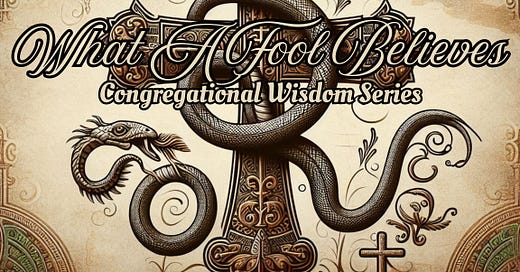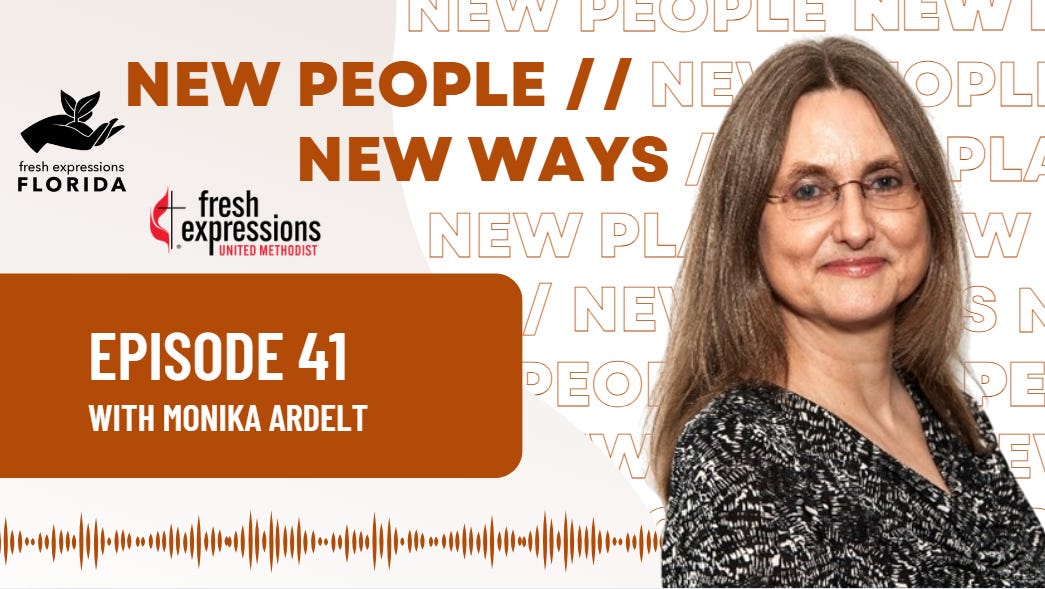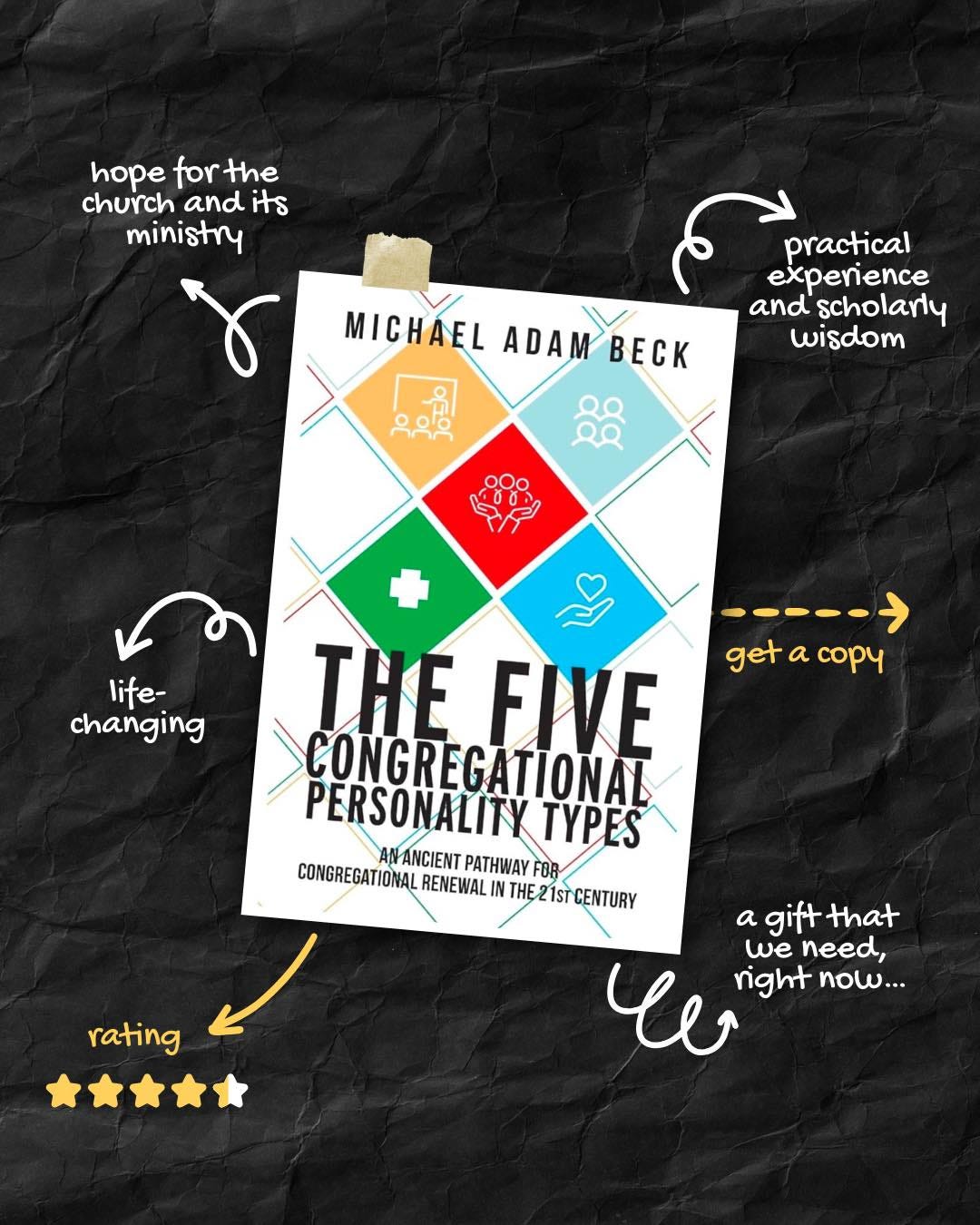Making Love Count: Reclaiming Stories That Don’t Fit the Spreadsheet
What a Fool Believes – Part 4
“But when it was all done, David was overwhelmed with guilt because he had counted the people, replacing trust with statistics. And David prayed to God, ‘I have sinned badly in what I have just done. But now God, forgive my guilt—I’ve been really stupid.’”—2 Samuel 24:10, The Message
“Cursed Are the Counters Who Have Replaced the Spirit with Statistics and Spreadsheets”
Fifteen years ago, I sat across from the church leadership committee in a fluorescent-lit Sunday school classroom for what was supposed to be a routine annual evaluation. Our team had just completed a year of planting two new Fresh Expressions, guiding people with no prior connection to church through spiritual journeys, and helping a declining rural congregation form community partnerships and launch an antiracism initiative.
I was exhausted—but also strangely hopeful. I had witnessed real transformation: people who hadn’t darkened the door of a church in decades (or ever) gathering to worship Jesus in a burrito shop and a tattoo parlor.
Then the evaluation began.
The committee chair glanced at the form. “Our worship attendance has only increased by five people. Giving is flat… not growing.” They slid the paper across the table. “We need you to focus more on growing our church.”
A long-time church leader raised her hand. The coffee hadn’t even stopped percolating when she spoke.
“Pastor,” she said, lowering her voice, “I’m just not sure all these side projects are really helping us grow.”
I paused. “What do you mean?”
“Well,” she continued in her gentle southern drawl, “we’ve got people meeting at the tattoo parlor, you’re doing something at a dog park on Saturdays, and you keep talking about that burrito Bible study. But our Sunday attendance hasn’t really changed, and our giving isn’t enough. I’m just wondering—when are we going to focus on making the church vital again?”
I took a deep breath. I wanted to tell her about the young woman at dog park church who found her way back to God after years of addiction. I wanted to explain how the man with fresh ink had found community in the parlor, a space where he could finally talk honestly about his suicidal thoughts. I wanted to lift up the quiet but unmistakable stories of transformation unfolding in these unconventional places.
Instead, I simply said, “I hear you. But what if vitality doesn’t look like it used to?”
The committee exchanged puzzled looks—confused, and honestly, a little angry. And that’s when it hit me:
We were using the same word—vitality—but we meant completely different things.
Counting for Compliance vs. Measuring for Movement
They were speaking in the lingua franca of our inherited indicator system: pews filled, budgets balanced, children’s programming buzzing. For them, vitality was what could be counted on the evaluation form—butts in seats, bucks in plates.
What I meant was something else entirely… lives changed, relationships restored, hope rekindled. The woman who found sobriety and said yes to Jesus for the first time. The teenager reading Scripture aloud at dog park church because she finally felt safe enough to speak. The trust being built, the wounds being healed, the love being shared as we confronted racism and segregation in our town.
These were signs of spiritual growth—but these stories didn’t count, because they didn’t fit on the spreadsheet.
What the committee wanted was certainty—something they could count and control. What I was offering was a movement of the Holy Spirit—something we could only discern and join.
And in that moment, it became clear, I wasn’t being asked to reflect—I was being asked to comply.
I was stunned. Had we not just spent a year walking with people in poverty, with the addicted, the spiritually curious, the religiously traumatized? Had we not received local media coverage for our marches for racial justice? Hadn’t we built something beautiful?
Aren’t these the very things Scripture describes as vital kingdom work?
New Missional Metrics for a Blended Ecology of Church
This wasn’t an isolated incident. I was hearing similar stories from colleagues across the connection, it was a systemic, institution-wide issue. In response, I wrote a white paper titled New Missional Metrics for a Blended Ecology of Church. I knew then that if we didn’t adapt how we measured vitality, the Fresh Expressions movement, and other holy experiments like it, would struggle to flourish within our denominational context.
The paper called for a paradigm shift in how churches evaluate vitality and discipleship in a post-Christendom world. Traditional metrics—attendance, membership, and giving—are inadequate measures of spiritual health and missional effectiveness. We proposed adaptive, narrative-based metrics grounded in theological reflection and contextual intelligence… learning metrics that could support the emerging practices of the Fresh Expressions movement.
Using the metaphor of a blended ecology, we envisioned the church as a living network of inherited and emerging expressions: rooted in tradition, yet branching into innovative forms of community and outreach.
This imagery is drawn from the Apostle Paul, who describes the church as a cultivated olive tree with deep roots (the historic faith) and wild branches (peculiar “Gentile” communities) grafted in by grace (Romans 11). Yet our current indicators only attempt to measure the root system, the wild branches are excluded. That leaves us with a distorted picture of the lived reality of local churches.
We should never critique without offering constructive paths forward. Drawing on biblical imagery, leadership theory, and frontline ministry experience, the white paper proposed the Loving First Journey as a metrics framework. We could develop a sequence of indicators for the six movements of the journey: listening, loving and serving, building community, exploring discipleship, church taking shape, and multiply. These metrics prioritize relationships, transformation, experimentation, and community impact over institutional maintenance.
As practitioners laboring in fields ripe for harvest, we were calling for a cultural shift… from institutional preservation to Spirit-led innovation. We envisioned churches cultivating both deep roots and wild branches for a vibrant, mission-shaped future.
I sent the white paper to the most influential stakeholders I knew. They received it warmly; some even affirmed its vision. But the dream was slowly ground to dust beneath the gears of institutional machinery.
Now, with the Missional Metrics Cohort and the Mapping the Metrics study, that dream is experiencing a kind of resurrection—a fresh hope for a better way forward.
Replacing Trust with Stats: When Metrics Become Idolatry
In 2 Samuel 24, King David makes a fateful decision: he orders a census of Israel’s fighting men. On the surface, this might seem like a prudent administrative act, what modern leader wouldn’t want good data? But the deeper issue wasn’t about numbers; it was about trust.
As The Message translation renders it, David was “overwhelmed with guilt because he had counted the people, replacing trust with statistics” (2 Samuel 24:10 italics mine). In trying to quantify his power, David had abandoned his posture of dependence on God. His act of measurement became a symptom of misplaced faith.
David’s error was not in counting per se, it was in where he placed his confidence. The census became a substitute for communion with God.
But there is hope.
Even in his failure, David models wisdom through repentance: “I have sinned badly in what I’ve done… forgive my guilt—I’ve been really stupid.” (v. 10) That kind of humble, reflective leadership is exactly what our moment requires. A willingness to admit fault, seek God, and return to trust.
If we are to lead wisely in an age of folly, we must exchange our addiction to control for a deeper communion with God and one another. Wisdom doesn’t dismiss data, but it refuses to be ruled by it or draw our assurance from it. Wisdom leads us to measure what truly matters: trust, transformation, and love.
This ancient story feels all too modern.
How often do we in the church do the same? How often do we trust the spreadsheet over the Spirit?
The Mapping the Metrics study revealed this same tension: a yearning to move from reductionistic metrics toward relational trust, discernment, and spiritual fruitfulness.
Church leaders, especially those innovating on the edges, repeatedly named the same pain: a system obsessed with measurement. Attendance. Giving. Professions of faith. A spreadsheet version of faithfulness that often leaves out the most important stuff… healing, justice, joy.
“We’ve replaced deep trust in the Holy Spirit with a spreadsheet.”
—Mapping the Metrics Participant
The issue isn’t the presence of metrics. It’s when metrics replace mission. When they stop serving discernment and start demanding obedience. When leaders shift from Spirit-led faithfulness to survival-driven performance.
That’s what happened to David. That’s what happened to us.
Unwise Metrics Lead to Unwell Churches: What the Report Reveals
The Mapping the Metrics report surfaced several core problems, here’s three of them:
• Lagging indicators: Most metrics tell us what happened yesterday, not what’s unfolding now.
• Misaligned incentives: We reward growth, not transformation.
• Spiritual distortion: Metrics reshape behavior—discouraging vulnerability, creativity, and faithfulness when they don’t “count.”
“The vitality dashboard is more interested in attendance than transformation, more focused on finances than fruit.”
—Mapping the Metrics participant
Instead of fostering spiritual vitality, metrics too often punish innovation, elevate institutional self-preservation, and leave us burned out and ashamed.
We’ve baptized managerial logic and called it stewardship. And it’s costing us the soul of the church. Unwise metrics lead to unwell churches.
“We need to stop measuring charisma and start measuring character.”
—Mapping the Metrics participant
Cursed Kinds of Counting
David’s census triggered plague. Today, we face a different affliction: anxiety, fatigue, spiritual drift.
• Clergy are burning out trying to hit benchmarks disconnected from their call.
• Innovative churches are closing because they don’t meet denominational KPIs (key performance indicators).
• Communities are told they don’t count—literally—because they don’t fit old frameworks.
• Young potential leaders are choosing emerging networks to explore their calling, rather than the restrictive protocols and red tape of mainline denominations.
• Entrepreneurial leaders are exiled or screened out of our systems due to institutional priorities that reward conformity, maintenance, and compliance over innovation, risk-taking, and contextual experimentation
“When we focus too much on the numbers, we stop trusting God.”
—Mapping the Metrics Participant
Indicators that Support Spiritual Growth
The solution isn’t to stop measuring. It’s to include new measures that assess the blended ecology of church.
The Mapping the Metrics report points to new forms of accountability and evaluation:
• Narrative-based reporting: Tell stories, not just stats.
• Discipleship metrics: Track spiritual growth, not just attendance.
• Community engagement: Measure trust, partnerships, and social capital.
• Experimental faithfulness: Celebrate what we tried—not just what succeeded.
“Metrics should foster reflection, not surveillance. Relationship, not control.”
—Mapping the Metrics Participant
Making Love Count
David counted the people when he should have communed with God. He trusted the data more than the Spirit.
We face the same temptation: to chart, to tally, to control… what can’t be controlled. But God’s presence is not a data point. It’s a relationship.
And relationships simply don’t flourish under compliance culture.
Sitting in that church committee fifteen years ago, I first saw the clash between institutional metrics and incarnational mission. There is a kind of counting that demands conformity to institutional norms, often stifling the creative energy of the Spirit. From then until now I’ve seen the disconnect between the stories of transformation we were witnessing and the spreadsheets we were keeping.
What we want is control, proof on paper that the church is “working.” What so many of us long for is trust—trust in the Spirit’s movement to heal hearts and form community amid the epidemic of isolation.
This moment, like David’s census, is a mirror. In our hunger for certainty, we so easily replace communion with counting. We trade Spirit-led discernment for spreadsheet-driven decisions. And like David, we must come to that place of clarity and confession:
“I have sinned badly...”
—2 Samuel 24:10 (The Message)
The way forward is not more of the same. It’s repentance.
Not control—but communion.
Not counting heads—but cultivating community.
Not institutional maintenance—but incarnational mission.
If we are to lead wisely in this anxious age, we must reclaim metrics that reflect the actual work of the Spirit among us. Let’s stop bowing to spreadsheets and start bearing the fruit of love, justice, healing, and hope.
Wisdom is the metric that matters.
Love is the fruit that lasts.
Trust is the true currency of the Kingdom.
So, what might it look like to measure what truly matters in your context? What signs of trust, transformation, healing, or community do you see that never make it into the spreadsheet?
We’d love to hear from you.
Let’s continue the conversation. Share your reflections below or in the Congregational Wisdom Circle Facebook group. What metrics are you using in your church? What do you wish we were measuring instead?
New Podcast Episode Alert!
In this episode, Michael and Jessica sit down with Dr. Monika Ardelt, a leading wisdom scholar, for a deep dive into the science of wisdom—and why it matters now more than ever. We explore the 3D Wisdom Scale, wisdom and aging, bad theology, organizational health, and how churches can actually cultivate wisdom in a rapidly changing world. If you care about the future of the church, leadership, or just becoming a wiser human, you do not want to miss this one.
Altogether Now: Seven Generations and Beyond
February 26–28, 2026 | Ocala, Florida
What if the future of the church wasn’t sealed behind stained glass, but planted in dog parks, gyms, tattoo parlors, and recovery circles? Join us in Ocala—ground zero for the Fresh Expressions movement in the U.S.—as we dream, co-create, and become the church the world needs.
Let’s gather across generations, cultures, and denominations to embody love, justice, and grace—altogether now.
Register now—pay what you can.
#FXUM26 #FreshExpressions #AltogetherNow #SevenGenerations #ChurchReimagined
The Five Congregational Personality Types
Are you a pastor navigating a new appointment? A congregation preparing to receive a new leader? Or just in a ministry season that calls for a fresh start? While there are plenty of personality assessments out there, there’s only ONE designed specifically for churches.
Every congregation has a distinct personality type. That personality can keep a church stuck—or propel it into growth and maturity, depending on how it’s understood and used. Rooted in psychosocial theory and biblical archetypes, this model will help you uncover:
-Which of the five personality types best describes your congregation
-How to nurture your church’s unique culture and strengths
-How to recognize the “shadow side” of your type—and transform it into a strength
-Your church’s #1 faithfulness strategy and clear, actionable next steps.
Get your copy and join the movement today!










Michael, thank you for this writing, and the larger series within which it exists, one that is so insightful and needed in this liminal-space time. You bring in detailed experience the spirit of Brian McLaren's book, 'Everything Must Change.'
This is good stuff. Another problem is that we submit the reports and the data is not used in any significant way.